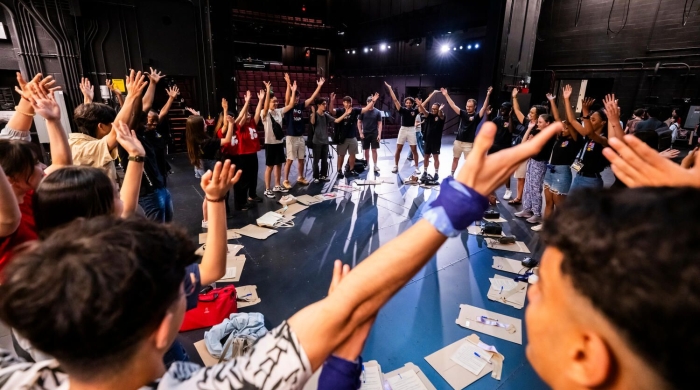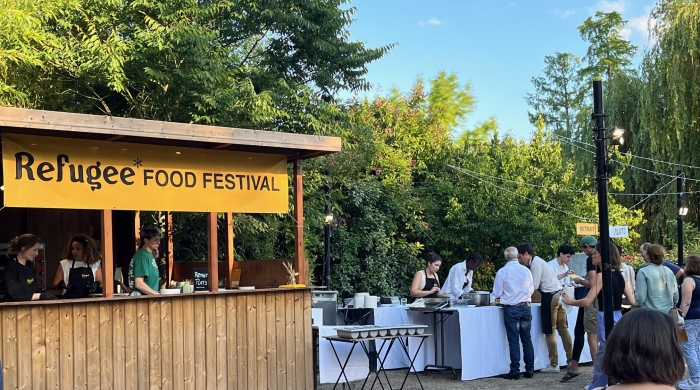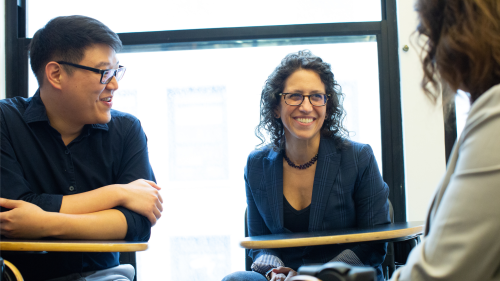The event, Inclusive Partnerships and Digital Global Citizenship Education, convened students alongside international education experts.
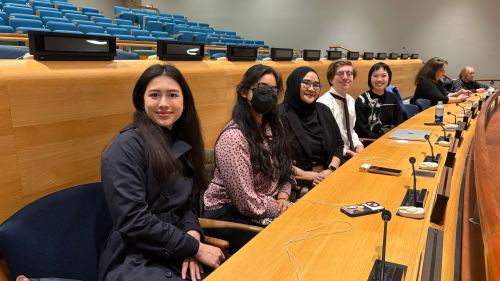
Several students in NYU Steinhardt’s Master of Arts in International Education (IE) program obtained a deeper real-world understanding of global citizenship education (GCED) by attending an event at the United Nations Headquarters in New York City.
The 2025 UN Economic and Social Council (ECOSOC) Partnership Forum Parallel Event was hosted by the International Virtual Exchange and Classroom Activities (IVECA) Center. It convened expert panelists, educators, youth mentors, and students from around the world to explore the transformative role of digitally facilitated global citizenship education in strengthening social cohesion and driving sustainable development.
The event’s first session included presentations from students who attend high schools in Korea, India, Mexico, and the United States about projects they are tackling to help shape a sustainable future, from the pollution of local rivers to the humanitarian crisis of migrants in their communities.
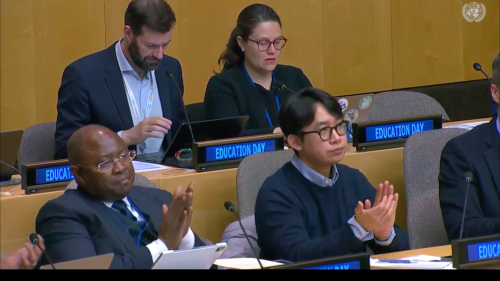
Carol Anne Spreen at the UN Headquarters
“The event provided a deeper understanding on a range of GCED initiatives, such as identifying implementable partnership strategies, showcasing youth-led solutions, promoting effective use of digital tools, and offering policy recommendations for integrating GCED into education systems,” says Seugenkyoo (Peter) Han, one of the International Education graduate students who attended the event. “With just five years to achieve the 2030 SDGs [United Nations Sustainable Development Goals], this event emphasized the importance of inclusive partnerships and digital learning platforms in advancing global cooperation.”
“I’ve been to the UN several times for tours, but this event was an opportunity to see what a real event looks like,” says graduate student Hasnaa “Naya” Naila, who was a middle school teacher in Indonesia before entering the IE program. “It was really refreshing to see students taking up space in the discussion.”
The second session was moderated by IVECA’s president Dr. Eunhee Jung and included a panel of experts on the transformative potential of GCED in the digital age. Carol Anne Spreen, associate professor of international education, was invited to speak during this portion.
“Solving today’s global challenges requires moving beyond outdated thinking and creating spaces for collaboration and idea-sharing,” says Spreen. “Learning extends beyond the classroom, and we must hybridize ideas, embrace creativity, and explore new possibilities. Digital technologies and collaborative spaces make this transformation possible.”
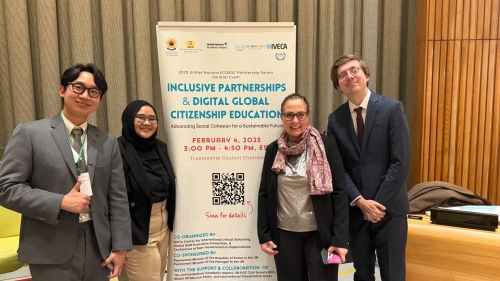
Because of the flexible nature of the event, Steinhardt students were able to network with leaders from IVECA and other organizations. One of the IE graduate students, Parker Hollingsworth, will soon be partnering with Spreen and IVECA to develop and implement digital global citizenship education modules that bridge US and Korean universities, focusing on collaborative projects that address the SDGs.
“Virtual exchange provides us a route to grow our global network and community without requiring students to travel physically,” says Hollingsworth. “This is a unique opportunity for us to collaborate across country lines at a politically charged time when cross-cultural exchange is so difficult to maintain.”
The event was sponsored by the Permanent Missions of the Republic of Korea and Portugal to the United Nations and co-organized by the Global NGO Executive Committee (GNEC) and the Conference of NGOs in Consultative Status with the United Nations (CoNGO).
Related Articles
Heddy Lahmann Leads International Youth Musicians in Cultural Exchange
700+ students participated in cultural exchange and peacebuilding workshops as part of Carnegie Hall’s World Orchestra Week (WOW!) Festival.
Steinhardt Hosts Two-Day Conference on Future of International Education
Participants included students, alumni, researchers, universities, and practitioners from around the world.
Elisabeth King Publishes Article on Intersection of Food and Peacebuilding
The vice dean for faculty affairs and professor of international education and politics wrote “Hypotheses on Food and Peace: Five Ways to Use Social Gastronomy for Peacebuilding.”
Related Programs
Related Department
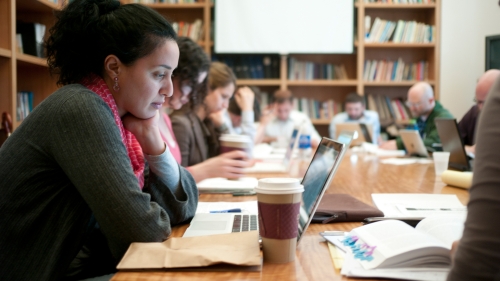
Applied Statistics, Social Science, and Humanities
Kimball Hall, 246 Greene Street, Third Floor
New York, NY 10003
212-992-9475

